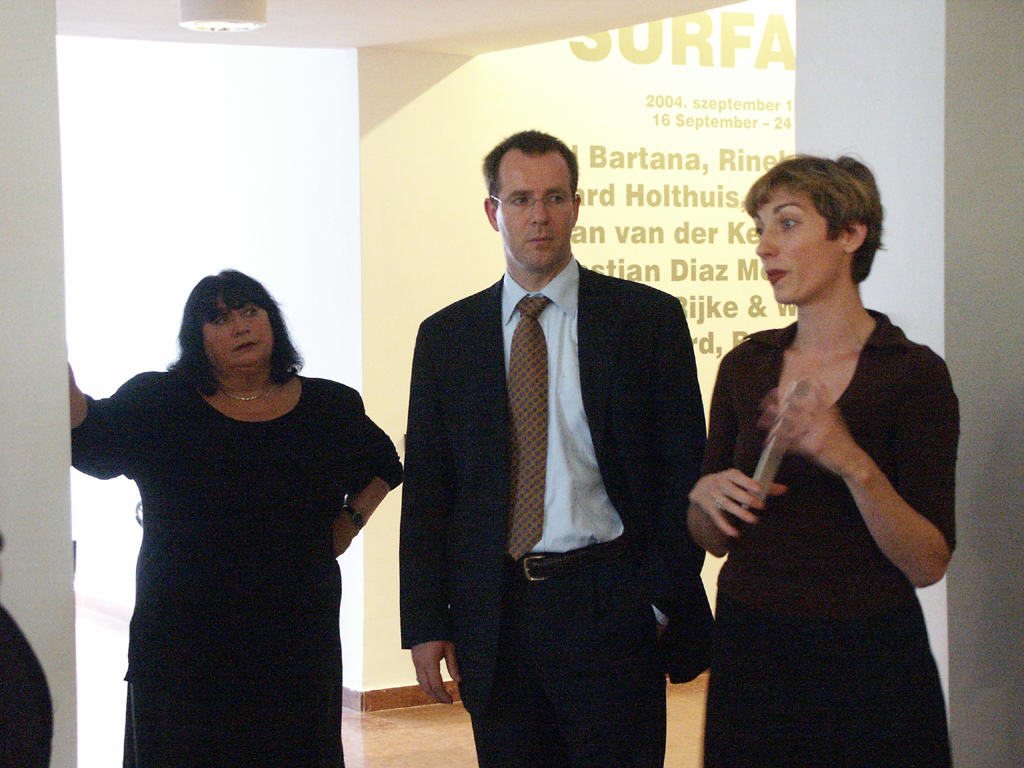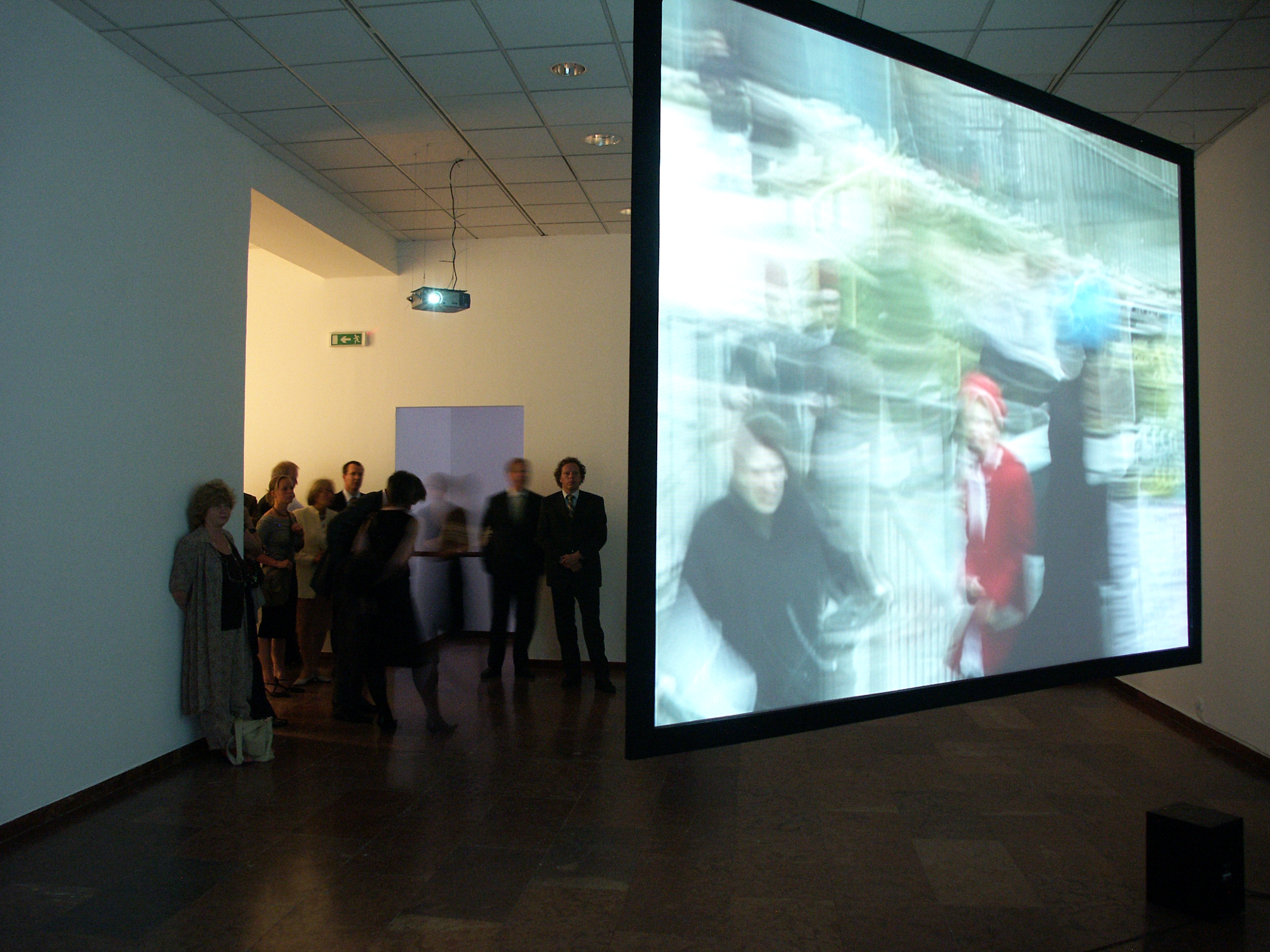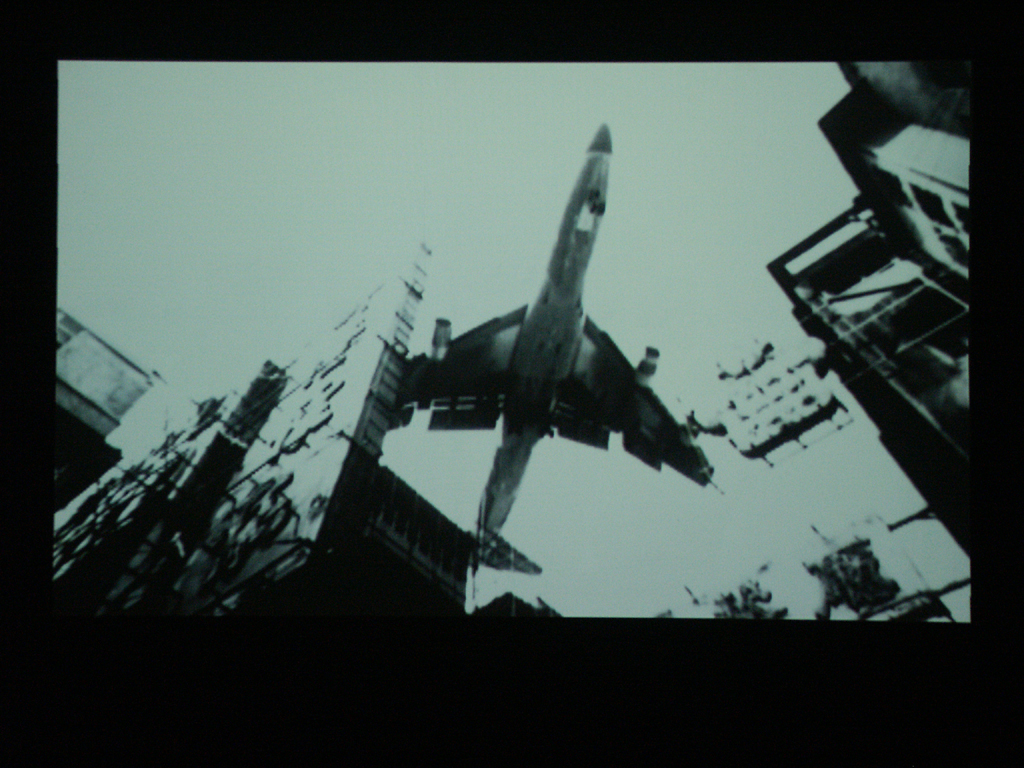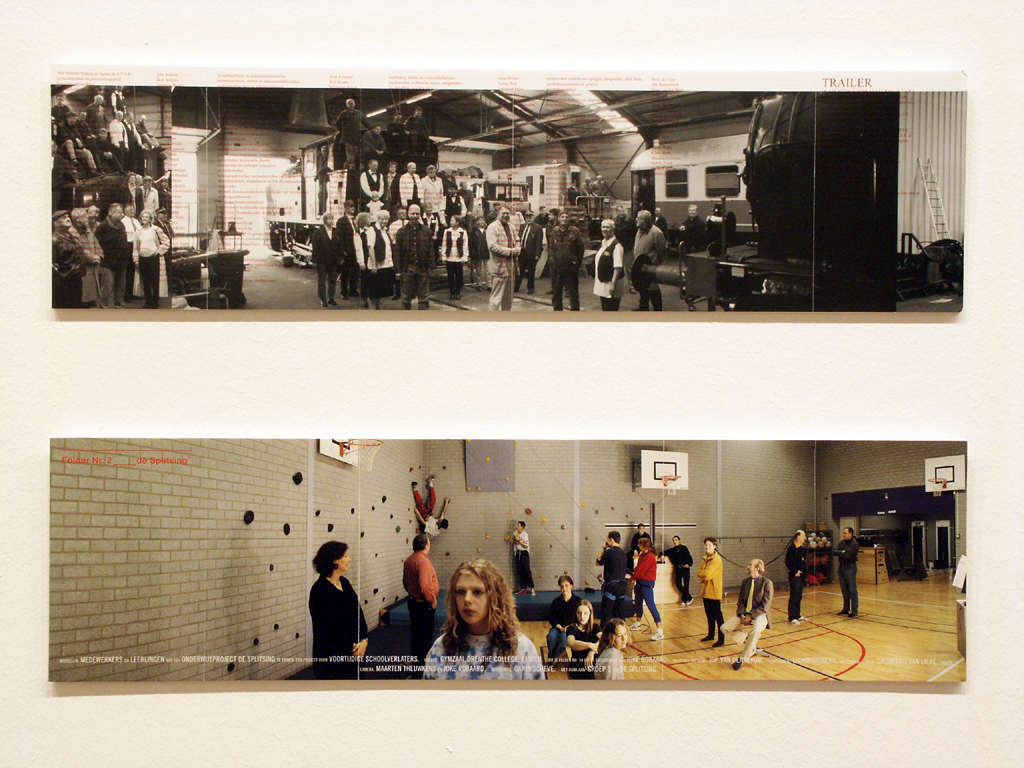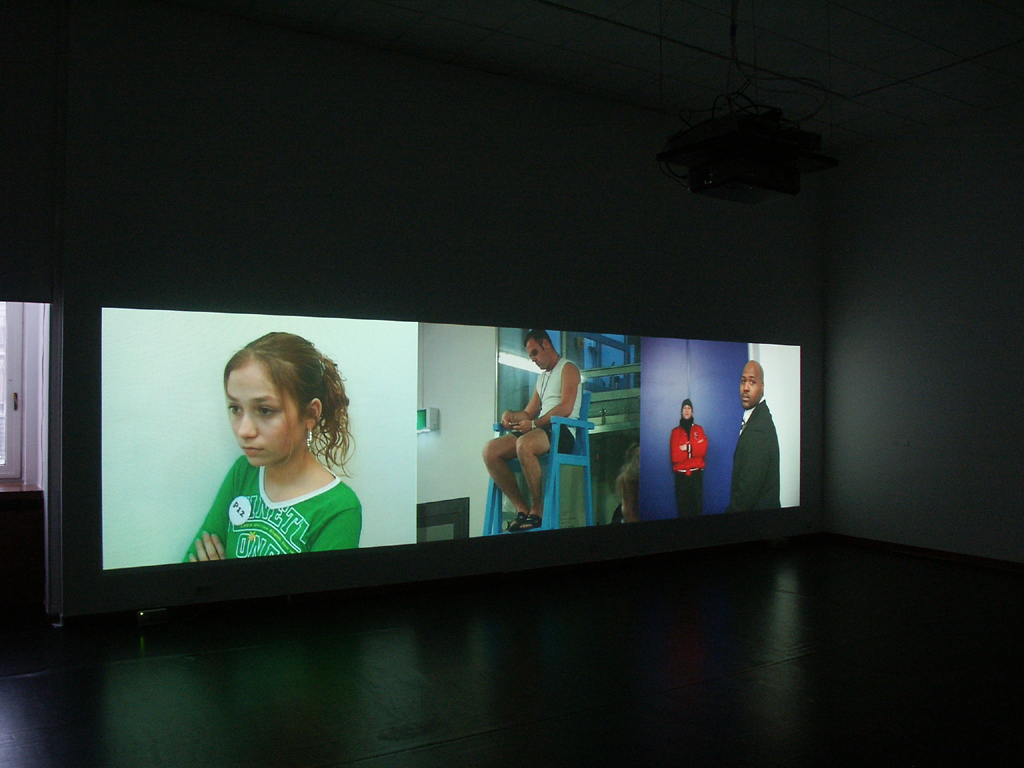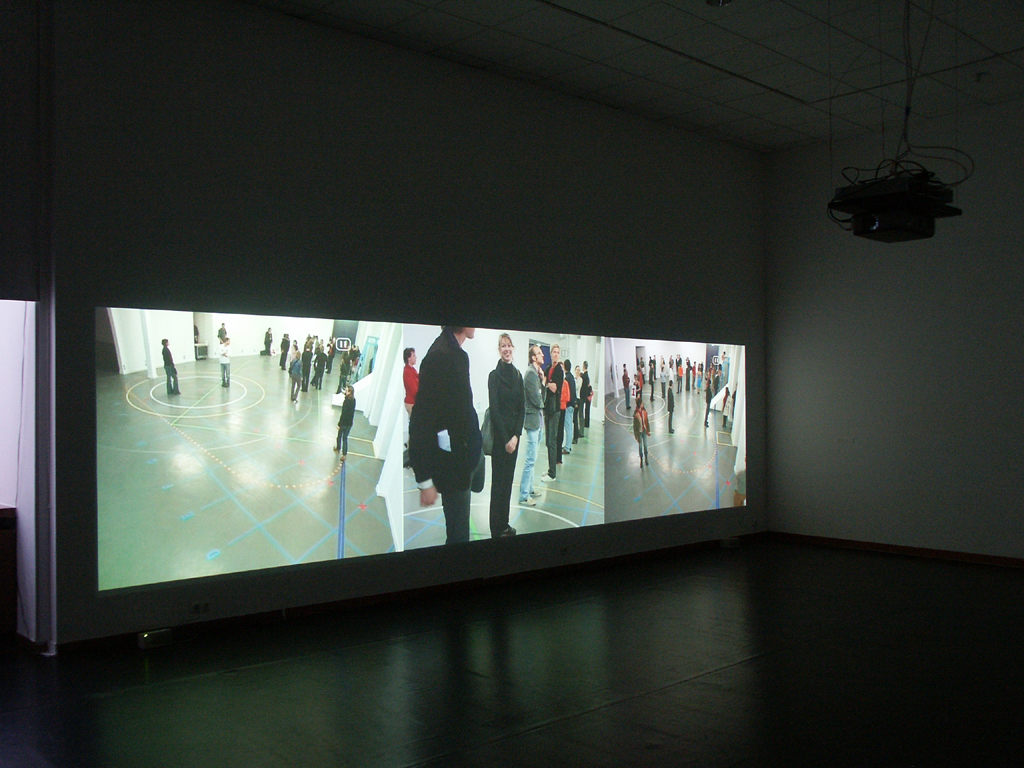Surfacing has partly developed out of the experiences of one of my previous projects, which defined the gallery’s position as the intersection of the white cube and the black box, where the physical and the absolute, the constructed and the ephemeral, fiction and documentary became interchangeable, and the boundaries of stylised and direct narratives and situations merged. The works selected for Surfacing also emphasize a more subtle, nuanced, analytic and/or poetic or even controversial representation of the recording and the viewing experience, suspending what has become the ‘natural’ condition: the unconditional and unreflecting surrender to the flow of the vision.
The exhibition underlines the connection between the application of an ’objective’, technical vocabulary and structuring on the one hand, and the instinctive pleasure of observation and recording in various media and genres on the other – from video installation and (staged) photography to filmic essay and documentary. Through tracing the relationship of different kinds of (re)presentation, a complex set of overlapping contexts, subjective viewpoints and constructions, Surfacing exposes different projections of reality and the often controversial situation of how these find their position in contemporary image culture.
The works selected derive from, and represent, different visual conventions, narrative frames, systems of distribution and practices of viewing. Each artist addresses and unfolds shifting realities by means of fiction, and their distinctive modes of narrating reveal more profound approaches to reality. By dismantling conventional notions of narrativity, they also delve into the theme of identity formation, and focus on situating and relating personal stories and experiences in a given cultural and social/historical continuum.
Moving between the time frames of the individual works and their spaces of presentation offers the viewer insights into various aspects of the viewing process, the relations between the works, as well as between the artists and the surrounding realities. The attitudes of the participating artists towards observation, recording and structuring not only raise questions about issues concerning the viewers or the social status of art, but also involve reflections on the possible status of the museum today, both as a concrete physical and a cultural location.
The exhibition is also a formation where dimensions such as slowness and speed, stillness and movement, merge in an atmospheric spatial continuum, offering its viewer a not so concrete but instinctual reading of the works themselves.
As well as the curator’s introductory essay to the show and the selected works of the artists the bilingual (English/Hungarian) catalogue includes two reflective texts by Clementine Deliss and Sven Lütticken with the aim to go beyond the direct communication of the exhibition and connect to the wider context of the works and the viewing position they create.
